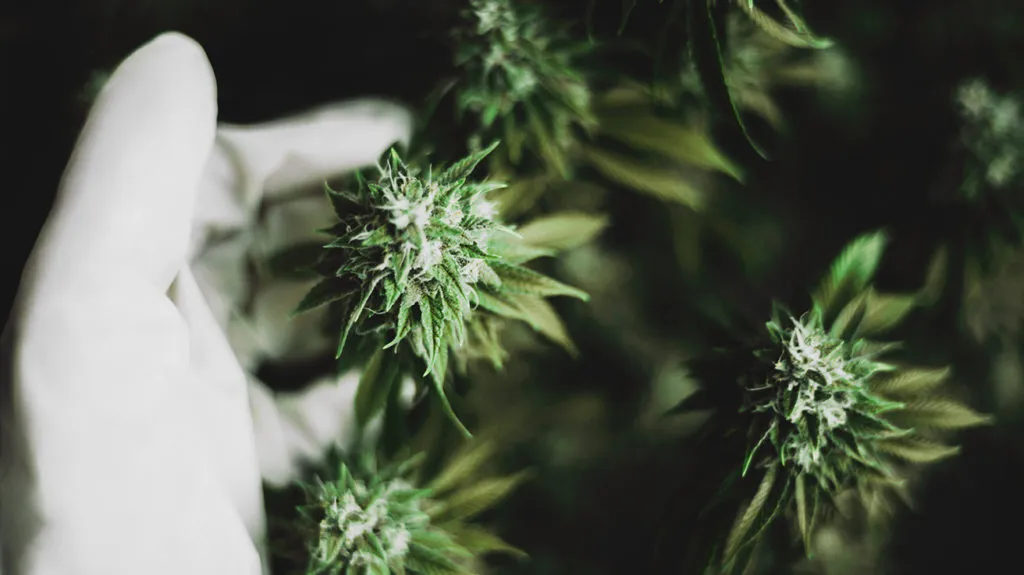As interest in cannabidiol (CBD) continues to grow, so does the availability of different products. A factor that often confuses people is whether the CBD in the products comes from hemp or cannabis. The short answer is that they derive from different varieties of the Cannabis Sativa plant.
The confusion surrounding hemp CBD vs. cannabis CBD relates to the plant’s classification, name, and makeup.
Basically, hemp plants generally contain more CBD, and cannabis plants contain more tetrahydrocannabinol (THC), a compound that causes the ‘high’ that people associate with cannabis use.
Keep reading to learn more about the differences between hemp CBD and cannabis CBD.
Is CBD legal?The 2018 Farm Bill removed hemp from the legal definition of marijuana in the Controlled Substances Act. This made some hemp-derived CBD products with less than 0.3 percent THC federally legal. However, CBD products containing more than 0.3 percent THC still fall under the legal definition of marijuana, making them federally illegal but legal under some state laws. Be sure to check state laws, especially when traveling. Also, keep in mind that the FDA has not approved nonprescription CBD products, and some products may be inaccurately labeled.
Why CBD?
Public interest in and the availability of CBD have grown due to its promising health benefits. People use CBD to help with a wide variety of physical and mental issues, including pain, nausea, addiction, and depression.
Although scientific studies have not confirmed CBD’s usefulness for all these conditions, available evidence suggests that CBD works with the endocannabinoid system, which is a signaling network.
Learn more about the potential health benefits of CBD oil here.
CBD, or cannabidiol, is non-intoxicating and one of the more than 540 phytochemicalsTrusted Source found in the Cannabis sativa (C. sativa) plant. THC, or delta-9-tetrahydrocannabinol, is the compound that gets people “high.” It is the difference between THC levels found in hemp and cannabis that has caused so many legal complications.
What is hemp?
Hemp is a specific variety of C. sativa. People have grown hemp for hundreds of years, using it to make rope, clothes, sails, food, and much more. Industrial hemp has an equally long history in the United States – Thomas Jefferson, the third president of the country, grew it himself.
The 2018 Farm Bill considers C. sativa plants with less than 0.3 percent THC as hemp or industrial hemp. Producers can grow it legally across most of the U.S., subject to strict regulations, and excluding three states.
Hemp plants do contain THC but at very low levels. However, certain types of processed hemp, such as tinctures, gummies, or capsules, can still cause euphoria.
In most cases, manufacturers use the leaves and flowers of the hemp plant to make CBD products.
What is cannabis?
There are three standard varieties of cannabis plants: C. indica, C. sativa, and C. ruderalis. There is also a range of hybrid plants that are a mix of these three strains. These cannabis plants contain much higher and varying levels of THC than hemp plants.
Besides containing more THC, these plants also tend to contain less CBD than hemp plants, and the difference has become steadily more pronounced.
A 2016 analysis found that the average potency of cannabis plants rose from about 4% in 1995 to 12% in 2014. Average CBD levels decreased from 0.28% in 2001 to less than 0.15% in 2014.
Cannabis CBD vs. hemp CBD
Cannabis and hemp plants contain both CBD and THC along with more than 540 other substances. The main difference between the two plants is the amount of each compound they contain.
Cannabis contains more THC, and less CBD. Hemp contains more CBD and less THC.
Most importantly, the benefits of CBD do not change whether it is cannabis-derived CBD or hemp-derived CBD. Common side effects, such as an upset stomach, feeling tired, or feeling on edge, remain the same. This is because the chemical make-up of CBD does not depend on which plant it comes from.
However, the amount of CBD available for extraction does depend on the source. Hemp plants contain far more CBD, making them the more lucrative option for manufacturers and the option with the least potential legal ramifications.
The main difference between hemp CBD and cannabis CBD is their legal status. According to the 2018 Farm Bill, products made from plants that meet the legal standards of hemp are legal across most of the USA, except three states.
Products made from plants that have higher levels of THC are not legal under this statute. However, it is important to note that all CBD products must have less than 0.3% THC, so even those made from cannabis-derived CBD should contain less than this amount.
The United States Drug Enforcement Administration (DEA) consider any CBD products containing more than 0.3% THC as a Schedule I drug in states where the recreational use of cannabis is not legal.
Summary
CBD is attracting considerable public interest because of its promise in treating various physical and mental health issues, even though there is no scientific evidence to prove these health claims.
Hemp and cannabis are two different varieties of the C. sativa plant with hemp containing more CBD and minimal THC.
Most CBD products are made from hemp plants as they contain far more CBD and almost no THC, which is the compound that creates the ‘high.’
Individuals considering using CBD for physical or mental challenges should inform their doctors to make sure it does not interact with any medications they may be taking.
The main difference between hemp CBD and cannabis CBD is legal standing.
